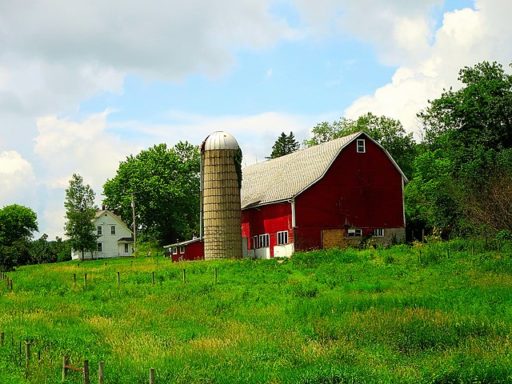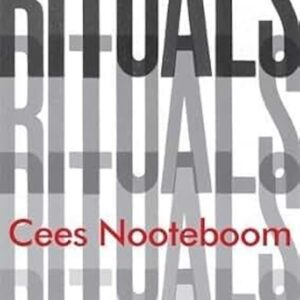Some months ago, I overheard two writers whose work I admire conversing about what makes subject matter—the stuff writers write about—interesting. I’m sure it was rude of me to eavesdrop. “Eavesdropping”— a fabulous word in itself— calls to mind someone lurking unseen, intent on overhearing what’s being said around the corner. It’s the vehicle of mysteries and comedies, depending on how much one overhears and in what context. Without eavesdropping, Shakespeare’s Much Ado About Nothing would be a plotless bore, for it’s in overhearing ostensibly private conversations—what Elizabethan Londoners called “noting,” pronounced circa 1600 indistinguishably from “nothing”—that the contentious Beatrice and Benedick are eventually driven together toward a rom-com finish. Though not generally considered one of Shakespeare’s “problem plays” (so-called comedies complicated with fraught social or psychological themes, such as Measure for Measure or All’s Well That Ends Well), Much Ado About Nothing turns dark at times. Perhaps some viewers need the punning title to remember they’re watching a comedy.
More to the point, it’s through eavesdropping that authors learn to write dialogue. The novelist Bret Lott tells his students to bring pen and notebook to an evening at Waffle House. He assures them that if they simply write down what they hear from the adjoining tables, they’ll leave with a novella’s worth of natural—and likely odd enough to be clever—conversation. Odd and clever, yes, but mundane as well. Sure, I’d love to talk like a character from a Noel Coward comedy, but nonstop wittiness grows exhausting and soon enough I’ll be commenting on the weather or my recent visit to the doctor. The clever and the mundane are often two birds on the same branch. Cleverness just has brighter plumage.
Witty characters are great fun but rarely deep. On occasion, wit serves as cover for deception. Late in Jane Austen’s Persuasion, Anne Elliot tells her cousin, “My idea of good company, Mr. Elliott, is the fellowship of clever, well-informed people who have a great deal of conversation and liberality of ideas.” Without missing a beat, the clever Mr. Elliot replies—gently, we’re told—“You are mistaken…that is not good company, that is the best.” True enough, but Anne’s cousin is soon proved a cad just in time for to her to perceive heretofore hidden depths in Captain Wentworth’s soul.
But I digress, as mundane conversations often do. Remember those two writers I was eavesdropping on? When one mentioned a recent novel about farm life that she admired, the other said, “Well, if you could persuade me that a novel about farming could be interesting, I might even consider reading it myself.” Perhaps that was the moment I should have stepped from behind my metaphorical eavesdropper’s curtain to ask the second author to explain herself, but that would have exposed my impertinent spying. Instead, I silently thought of novels set on farms that many consider modern classics: My Ántonia, The Grapes of Wrath, Charlotte’s Web, and nearly everything by Wendell Berry. That would have made a witty riposte, but I held my tongue.
Yet I continued to think about it long after the conversation was over—until another, far more mundane response came to mind. As a creature subject to the requirements and limits of my body, I happen to eat food—not for amusement or witty digression, but out of necessity. Some fortunate epicures live to eat, but all humans must eat to live. As a physician, I can assure you that patients who go too long without adequate nutrition—whether by mouth, through a tube, or intravenously—don’t fare well.
Depending on our culture of origin, we may call bread, rice, or corn “the staff of life,” but how many of us can pinpoint where our preferred cereal grain comes from? Caring about how and where the ingredients of our food were grown now seems a fashionable, upscale attitude, like the couple on a dinner date in Portlandia who inspected the farm where the café’s chickens were “ethically raised” before placing their order. The best laid plans of progressives and populists are oft coopted by corporate capitalism, a system for which the long-range health and flourishing of its willing consumers is, at best, its number two concern. There’s too much short term profit to be made in “wokeness” as long as the woke have money to spend and choices to make. I neither know nor care how woke I am, but I’m painfully aware I grew up in a lily-white midwestern suburb where I was narcotized by the advertising industry to forget there is more to life than increasing its choices.
There’s robust evidence that black, indigenous, and other people of color are as interested in eating responsibly as whites. Yet, while the farmers’ markets I frequent draw a refreshingly diverse crowd, most of the farm-to-table restaurants I visit have an overwhelmingly white bourgeois clientele, making it easy for me to blend in with the rest of the foodies. That may have a lot to do with where such restaurants are located and how and where they advertise. Maybe there’s more diversity where you live. Be grateful if that’s the case.
I fear I’ve already grown overly political for this venue, so I’ll bring this rambling essay to a close by making two points. The first is practical, if controversial, as it concerns global climate change. (Not what you were expecting, right?). There are many who think themselves “conservative” who believe humanity’s role in “recent unusual weather events” to be greatly exaggerated, just as many self-identified “liberals” imagine humans will invent their way out of social and ecological collapse with as yet nonexistent clean energy sources sufficient to sustain current levels of consumption. Both think the tipping point has yet to come, if such a point even exists. The available data suggest otherwise. I don’t claim to know the timing or details, but many lines of converging evidence point to a human future with far less consumption, fewer choices, and more physical labor. Given our current habits and appetites, none of this will happen without considerable panic and social chaos. To what degree and end I have no idea. Yet one aspect seems clear: where our food comes from and how it gets to us will become of great interest to all, if only because our choices will be heavily constrained. If so, learning to grow some of one’s own food in a garden might be a good starting point. In one’s off time and especially during the winter months, however, reading about farm life in whatever genre appeals to you might be of interest, too. Why not begin now?
My second and final point is much briefer. The mundane, derived from the Latin mundus (“the world”) is interesting because the world is inherently interesting. Indeed, the world is all we know. It’s far more fun to read witty accounts of the mundane, but any true, clear rendering of the world—whether by Shakespeare, Coward, Austen, Berry, Portlandia’s screenwriters, or the two unnamed authors I overheard—ought to be of interest. This includes well-written accounts of farm life. And at that, this eavesdropping city dweller rests his case.
Brian Volck is a pediatrician and writer living in Baltimore. He is the author of a poetry collection, Flesh Becomes Word, and a memoir, Attending Others: A Doctor’s Education in Bodies and Words. His website is Brianvolck.com





